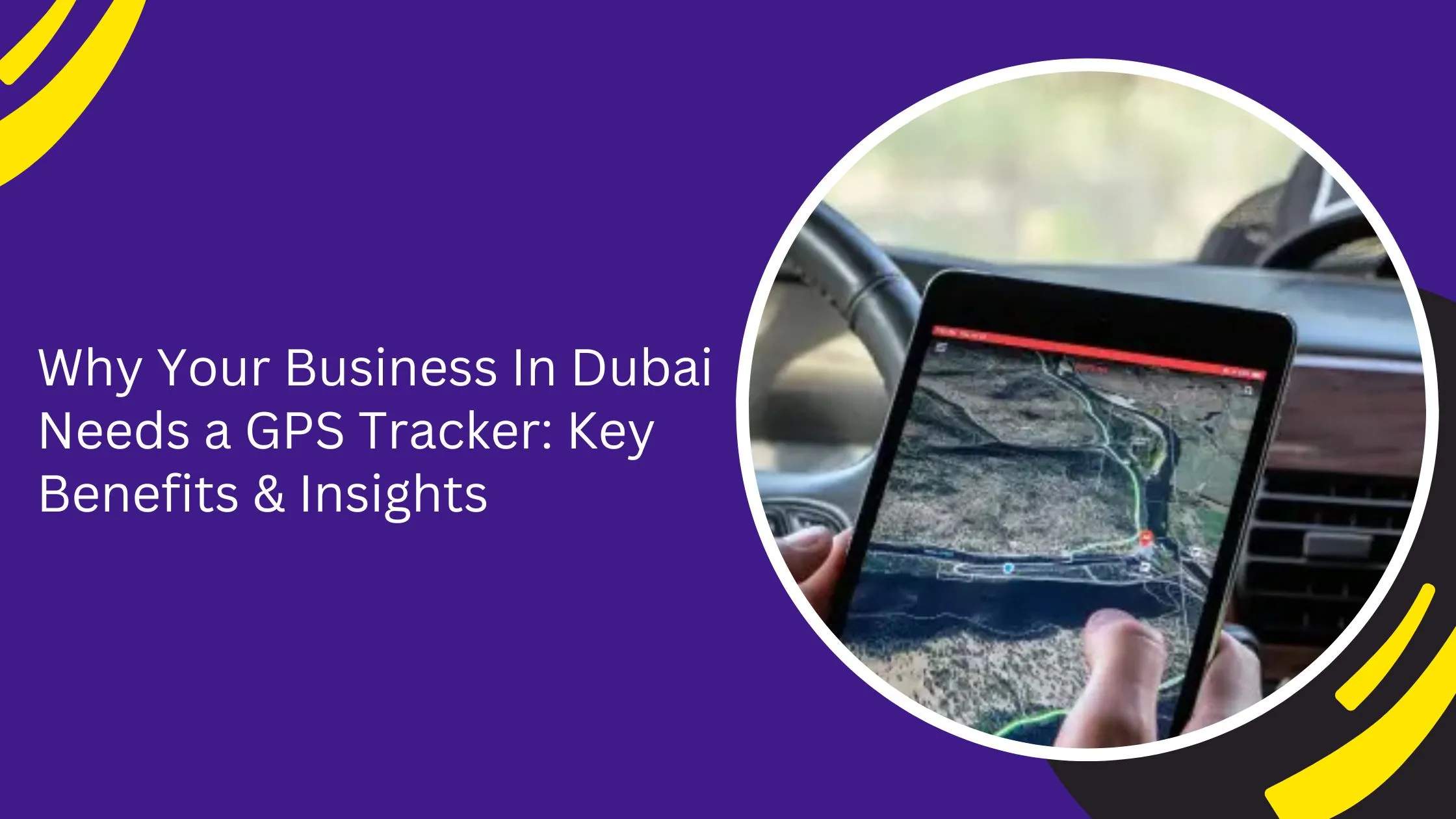

Dubai is a worldwide transportation center with a constantly rising population, dense traffic, and a large number of cars on the road. However, it is difficult for businesses to ensure efficiency, cost-effectiveness, and safety while running fleets. Therefore, if your business needs to operate a fleet of any kind in Dubai, investing in a GPS tracker can greatly reduce these issues while enhancing operations. In this article, we will look at how GPS trackers help companies in Dubai.
Provides Real-Time Visibility

Businesses can keep a real-time eye on their fleet using a GPS tracker. It has been evaluated that constant investigation is ensured by GPS technology, whether it is used for vehicle tracking, route deviation monitoring, or asset recovery. Moreover, businesses in the UAE may improve fleet control and security, lower the risk of theft, and increase operational transparency by using a vehicle GPS tracker.
Tracking of Equipment and Asset

GPS trackers can be attached to assets by businesses that employ specialist technology. Along with providing information on road conditions, these trackers give position, speed, and direction updates. However, to ensure the best possible use of the equipment, more advanced versions may also alert operators when an engine is started or stopped.
Automated Route Planning
Fuel prices can rise and delivery can be delayed due to Dubai's severe traffic jam. By evaluating real-time data, vehicle storage capacities, and road conditions, a GPS tracker helps with automated route planning. However, this guarantees that drivers use the most effective routes, cutting down on travel time as well as increasing fuel efficiency.
Effective Dispatch System
Businesses can create real-time connectivity between drivers, fleet management, and customers by integrating GPS with cloud-based telematics. Furthermore, this ensures a smooth service experience by matching vehicle types and locations with client demands, improving dispatch efficiency.
Boost Safety
It has been suggested that every business that uses automobiles must prioritize safety. Real-time notifications on driver behavior, such as abrupt turns, forceful braking, and excessive speeds, may be obtained using GPS trackers. In Addition, the safety of drivers and passengers is further improved by features like seat belt alarms and panic buttons, which enable prompt response in an emergency.
Advanced Driver Assistance System
Dubai recorded an estimated 141 road accident deaths despite having one of the greatest road networks and strict traffic laws. It has been estimated that driver carelessness, exhaustion, tailgating, and speeding were the most often mentioned causes. Although advanced safety technology can be integrated with GPS tracking to help reduce accidents. It can increase the safety in following ways:
- An electronic stability control system can detect the situation and apply brakes to maintain control when a driver turns abruptly.
- If the driver does not maintain a safe distance, a Collision Mitigation System will automatically apply brakes and send out signals. It employs radar technology to identify metallic objects up to 500 feet ahead.
- A motion camera is used by the Lane Departure Warning and Lane Assist systems to identify lane lines, determine the location of the vehicle, and alert the driver if the bus begins to drag. The car will automatically steer back into line if the driver doesn't notice.
- Intelligent Speed Assistance can automatically stop accelerating and warn drivers of speed restrictions on the road by using GPS-linked speed limit data or speed sign recognition cameras.
Remote Diagnostics
GPS trackers can monitor engine performance, brakes, and tire pressure. In order to keep vehicles in top condition and lower the chance of breakdowns, these real-time diagnostics assist companies in identifying issues early.
Predictive Maintenance
Poor vehicle maintenance can negatively impact fuel economy and increase the risk of breakdowns and accidents. Therefore, GPS tracking technology is here to capture and analyze vehicle performance data, predict issues, and set maintenance schedules. This helps prevent major breakdowns and costly repairs in the future.
Increased Fuel Efficiency
It has been evaluated that the cost of fuel has a big influence on corporate expenses. While through monitoring mileage, vehicle performance, and driver behavior, a GPS tracker can measure fuel use. In order to improve fuel efficiency, companies can discover inefficiencies such as excessive idling and take corrective actions.
Driver Accountability
The health of the vehicle and fuel economy is negatively impacted by poor driving practices like forceful braking, excessive speeding, and idling. Fleet managers may examine driver behavior by trip using GPS tracking data, and they can get notifications when certain limitations are exceeded. Furthermore, it can assist in the creation of driver scorecards, the identification of drivers who are in default, and the customization of their instruction. Drivers are kept aware and attentive to their obligations by reviewing their performance on objective criteria and offering helpful criticism.
Enhanced Customer Satisfaction
A GPS tracker simplifies order management, route planning, and real-time tracking for delivery and logistics companies. Accurate expected delivery times are provided to customers, which as a result increases openness and fosters customer trust.
Automated Compliance
It has been suggested that for companies that run fleets, regulatory compliance is essential. In order to ensure smooth compliance with labor laws and vehicle rules, a GPS tracker automatically records the hours that drivers work and sends this data to regulatory organizations in an appropriate manner.
Data Storage and Analytics
When a GPS tracking system is used, paper records are no longer necessary since all possible data about workers, vehicles, and activities is automatically recorded and saved on the cloud, where it can be accessed and examined as needed. In addition to aiding in trend analysis, forecasting, and budgeting, this data can be used as evidence in the event of a legal dispute.
Conclusion
In the end, it has been concluded that fleet management is difficult in Dubai because of its intense traffic and expanding population. Businesses in Dubai lose money every year as a result of inefficiency, high operating expenses, and delayed transportation. However, an all-in-one option to increase safety, optimize routes, boost security, and cut costs is a GPS tracker. Therefore, it has been recommended that investing in a car GPS tracker UAE may be quite beneficial for business agencies in Dubai and other Emirates, including logistics firms and automobile rental. Moreover, whether it is a mini GPS tracker for personal security or a vehicle car GPS tracker for fleet management, adopting this technology is essential for operational success. Additionally, a competitive advantage in a changing market is guaranteed by installing a GPS tracker in Dubai, which also increases corporate efficiency.

